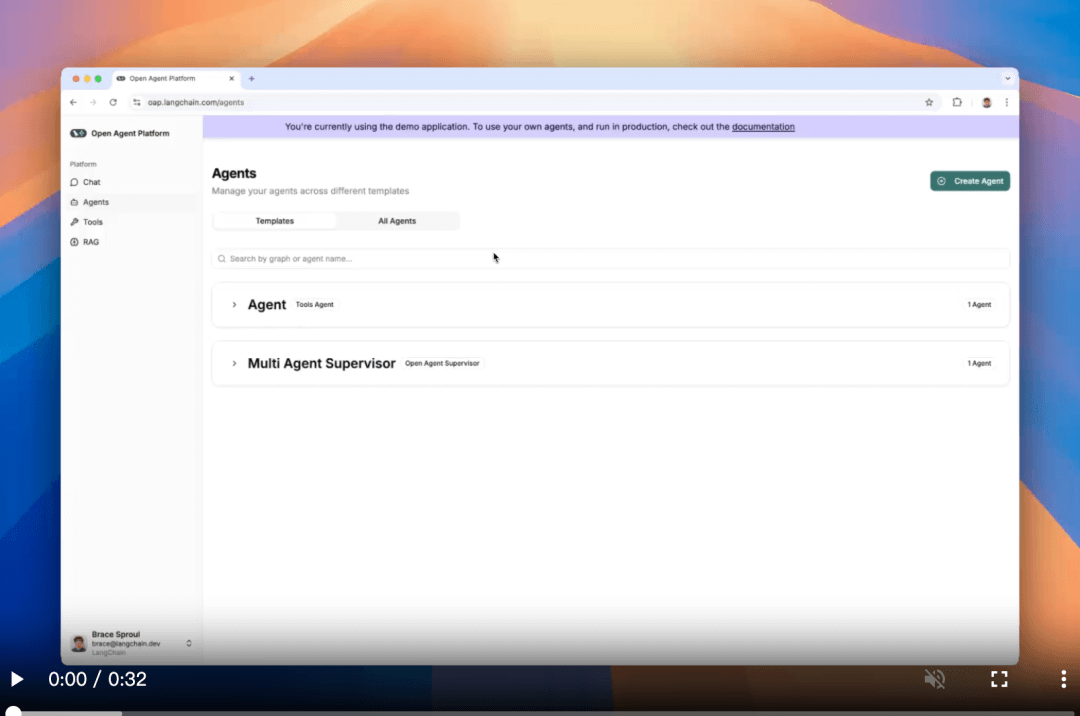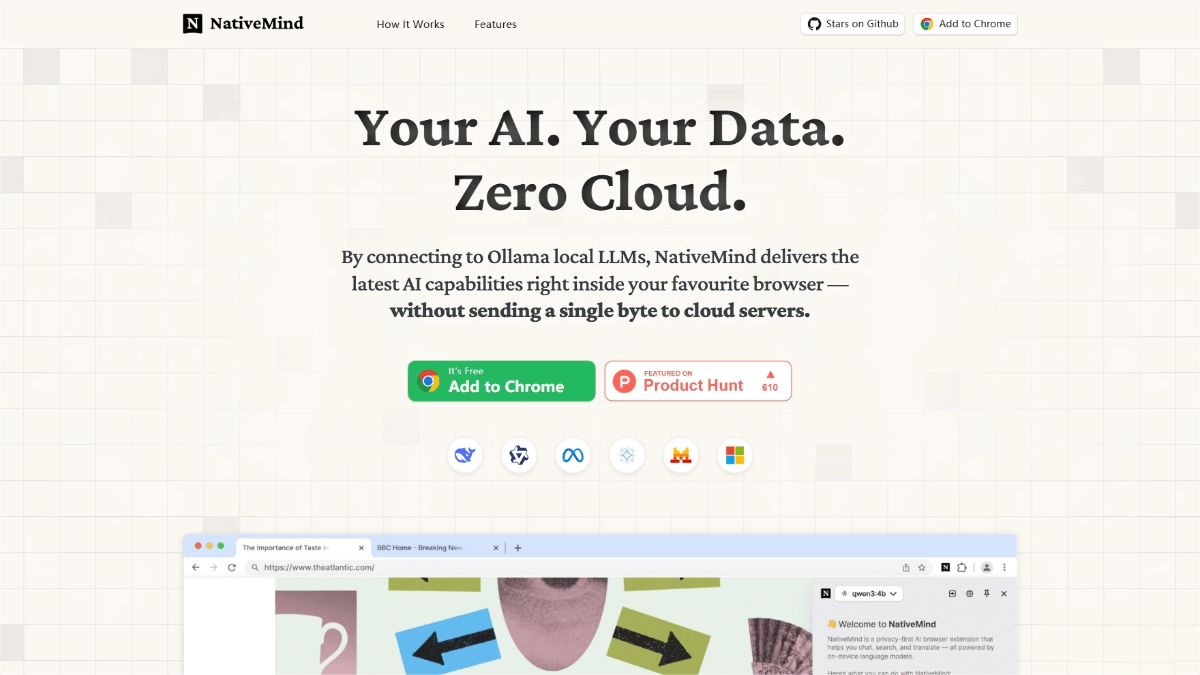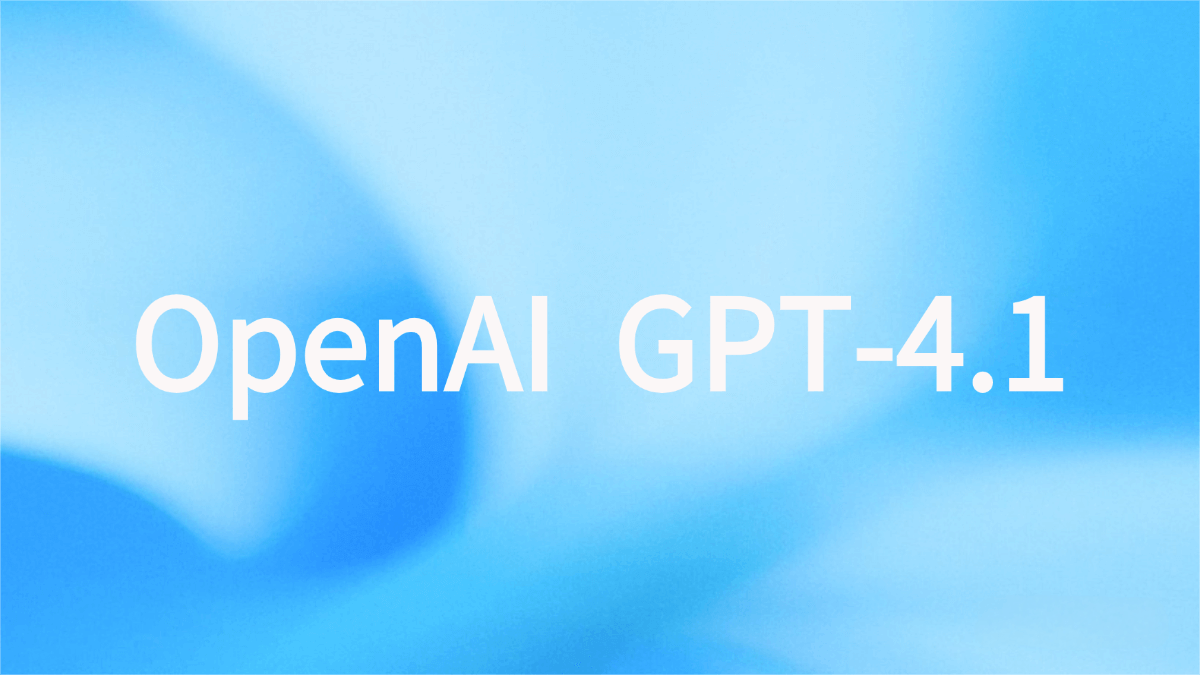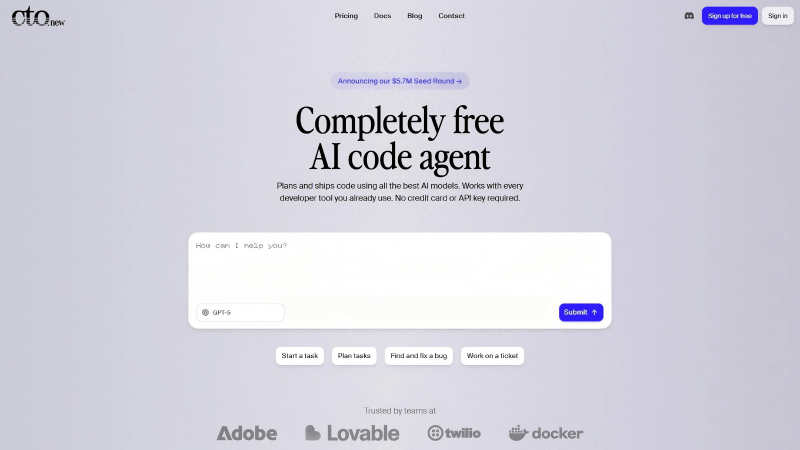LangChain Open Agent Platform: The No-Code Future of Intelligent Agents
What is the LangChain Open Agent Platform?
LangChain Open Agent Platform is a no-code tool for building intelligent agents. It allows users—even those without programming skills—to easily create and manage agents. The platform supports connections to various tools, retrieval-augmented generation (RAG) servers, and other agents, making it ideal for developers, researchers, and non-technical users alike.

Key Features
-
Graphical Agent Builder: Easily design and configure agents using a user-friendly visual interface, with support for various tools and task configurations.
-
Multi-Agent Collaboration: Supports coordination between multiple agents, with Agent Supervisor managing communications and task delegation.
-
Tool & Deployment Management: Add custom tools and deployments via environment variables for extended functionality.
-
No-Code Experience: Fully operable without writing a single line of code—ideal for users with limited technical background.
-
Open-Source & Extensible: As an open-source project, it allows for full customization and extension to meet specific project needs.
Technical Foundation
LangChain Open Agent Platform is built upon a set of robust technical components:
-
LangGraph: A framework that enables graphical workflows for agents, supporting complex multi-agent interactions and task flows.
-
Environment Variable Configuration: Users can configure custom deployments and tools using variables like
NEXT_PUBLIC_DEPLOYMENTSandNEXT_PUBLIC_TOOLS. -
Modern Web Interface: A sleek, browser-based front end allows users to build and manage agents directly from their web browser.
Project Links
-
GitHub Repository: https://github.com/langchain-ai/open-agent-platform
-
Live Demo: https://open-agent-platform.vercel.app
Application Scenarios
-
Data Analysis: Build agents that process and analyze data, generate reports, and create visualizations.
-
Office Automation: Create agents that handle routine office tasks like replying to emails or scheduling meetings.
-
Web Browsing: Deploy agents that can automatically browse and extract information from the web—great for research and monitoring.
-
Education & Training: Use it as an educational tool to teach students and professionals about intelligent agent design and deployment.
-
Customer Support: Develop customer service agents that automatically respond to inquiries, improving response times and service quality.
Related Posts




